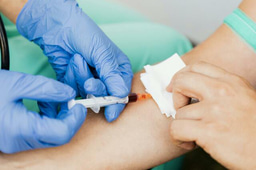Introducing epiLiver: A High-throughput Test for Early Detection of Hepatocellular Carcinoma
Published in Cancer
Ranked as the fifth most common cancer worldwide, hepatocellular carcinoma (HCC) often remains undiagnosed until late stages, leading to low survival rates. Conventional diagnostic methods, such as imaging techniques and immunoassays using alpha-fetoprotein (AFP), exhibit limitations in early-stage detection. To address this, the team at HKG Epitherapeutics, with their background in biotechnology, and collaboration with icddr,b, a renowned clinical research institute, has developed epiLiver, a high-throughput test using DNA methylation signatures.
DNA methylation, an epigenetic mechanism controlling gene expression, exhibits a distinctive pattern in HCC samples when compared to normal tissues and blood profiles. By harnessing this unique signature, our team crafted a classifier incorporating four CpG sites—DNA segments where a cytosine nucleotide is followed by a guanine nucleotide. A particular CpG site in the F12 gene emerged as a standout, effectively distinguishing HCC samples from normal tissues, non-HCC tumors, and other blood samples. This discovery, validated in a separate dataset, marks a promising direction in HCC detection.
To turn this theory into practice, we developed a high-throughput assay using state-of-the-art next-generation sequencing and multiplexing techniques. We applied this assay to analyze plasma samples from 554 individuals, encompassing HCC patients, non-HCC cancer patients, individuals with chronic hepatitis B, and healthy controls. The results were remarkable, with a detection sensitivity of 84.5% for HCC at 95% specificity.
The development of epiLiver is part of a broader, ongoing research endeavor. Its ultimate potential will be realized when implemented amongst high-risk populations, potentially leading to a significant decrease in HCC-associated morbidity and mortality.
Further research and technological refinements are in the pipeline, but the introduction of epiLiver represents a significant step towards more accurate, early-stage HCC detection. The test shows substantial promise as a routine early detection tool for high-risk populations, thus making a substantial contribution to collective efforts against this serious disease. The HKG Epitherapeutics team acknowledges all collaborators and participants who have contributed to this development and remains dedicated to continued work against HCC.
Follow the Topic
-
Nature Communications

An open access, multidisciplinary journal dedicated to publishing high-quality research in all areas of the biological, health, physical, chemical and Earth sciences.
Related Collections
With Collections, you can get published faster and increase your visibility.
Women's Health
Publishing Model: Hybrid
Deadline: Ongoing
Advances in neurodegenerative diseases
Publishing Model: Hybrid
Deadline: Mar 24, 2026


Please sign in or register for FREE
If you are a registered user on Research Communities by Springer Nature, please sign in
Great work, is this very specific to HCC? Have you tested other caner types`?
Thank you for your kind words and for your interest in our work. This high-throughput test has been specifically developed for the early detection of Hepatocellular Carcinoma (HCC). To ensure its specificity to HCC, the assay underwent testing on individuals with 15 different non-HCC cancers (Fig. 5, 6 and 7 of the manuscript).